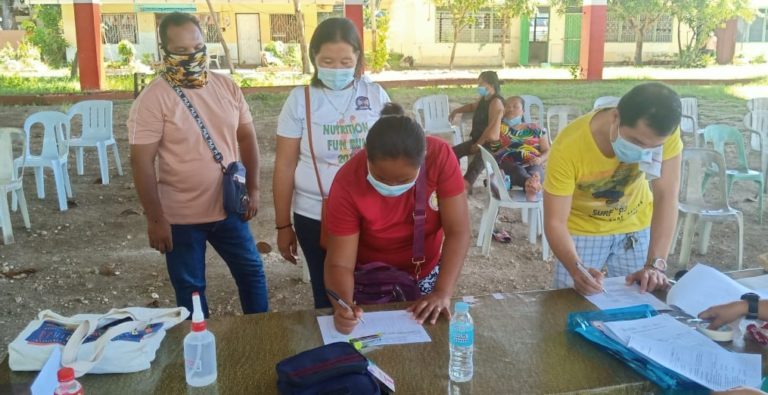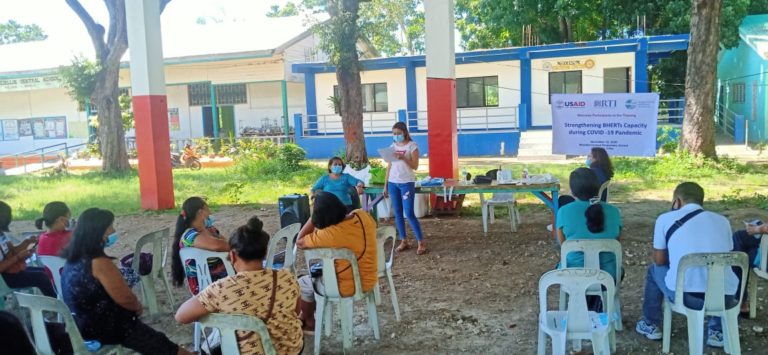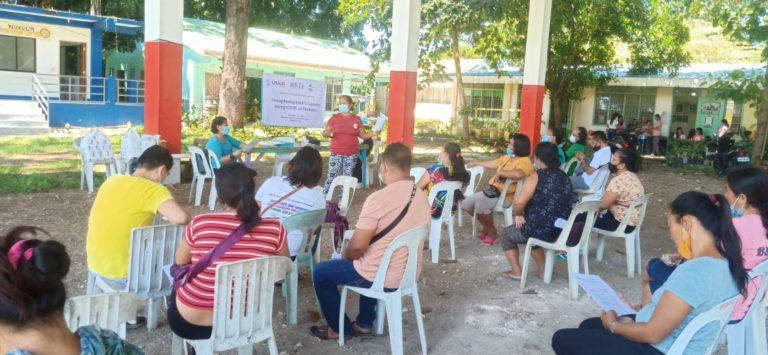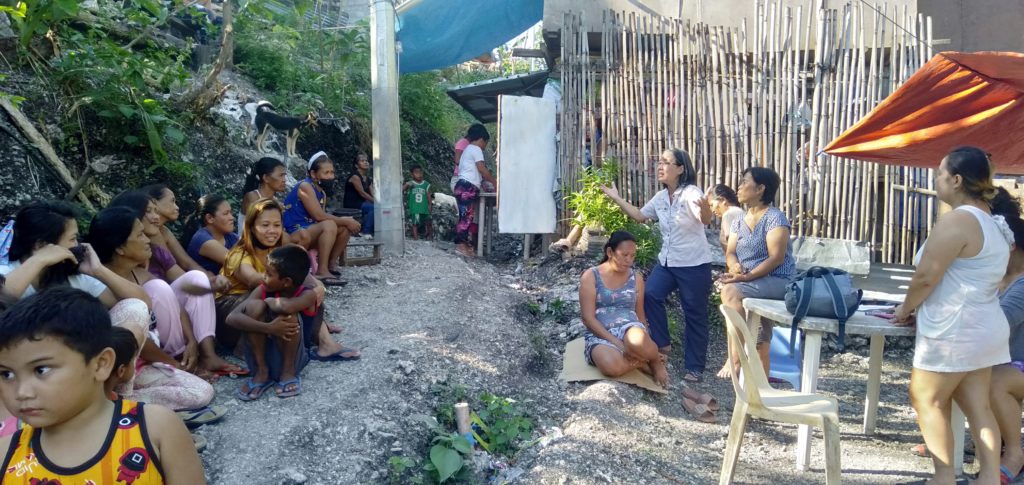A total of 25 members of the Barangay Health Emergency Response Team (BHERTs) and other government employees of Medellin attended a post-training monitoring last November 16, 2020 at the Medellin Central School.
The BHERTs were from Barangays Mahawak, Daanlungsod, Caputatan Norte, Lamintac Norte, and Maharuhay. There were two barangay health workers, one barangay nutrition scholar, five tanods, and eight other members of the BHERTs, for a total of 25 participants.
The Visayas Primary Healthcare Services, Inc. organized the forum as part of the project supported by the United States Agency for International Development (USAID) on COVID-19 response.
The participants were trained on September 3, 11 and October 16 on their roles and functions, infection prevention and control, risk communication and community engagement, gender-based violence, adolescent concerns and water, sanitation and hygiene (WASH). Since then, they are expected to apply what they have learned during the training and there is a need to assess how much they have done so through a post-training monitoring activity.
The activity determined the composition and functionality of the BHERTs, monitored their performance on navigating and listing of contacts, monitoring and reporting of close contacts, monitored their information dissemination of COVID-19 related issues, and monitored how they have facilitated the delivery of continuity of access to essential health services during the COVID-19 pandemic.
There was a workshop composed of groups, with each barangay composing a group. Each group filled up a monitoring tool on the points of monitoring. Then, the leader of the group presented the results of the post-training monitoring tools and shared their experiences with the plenary session regarding the performance of their functions as BHERTs. They also made action plans on how to improve their services.
Each barangay has one BHERT. They have performed their functions well since the training, including monitoring close contacts and locally stranded individuals (LSIs) in home quarantine daily for 14 days as a protocol, using the Contact Line List and Signs and Symptoms Log and by home visitations on the first day and texting on the subsequent days. If the close contact showed COVID-19 symptoms, they reported it immediately to the barangay captain and Municipal Health Office (MHO).
Each barangay has a contact tracing team with the Barangay Health Workers (BHWs) to guide the team. The BHERTs also do home visits and disseminate information on COVID-19 and the health protocols using texting and social media. They have also continued essential services such as family planning, TB-DOTs and giving of hypertensive maintenance to the people in their communities, reminding mothers to have their children immunized, and weighing of children. According to many BHERTs, only a few in their community know about Gender-Based Violence (GBV). They generally expressed their appreciation for the knowledge that they got from the trainings by the VPHCS which they have applied in their practice as BHERTs.
The participants said that there is more need to reach out to more individuals and continue to ensure that essential health services are continued in the communities. Additional information dissemination through the social media, leaflets and other means of spreading the information was also seen as the continuing need.







